Yes, ‘Maskne’ Is a Thing — Here’s How to Treat It
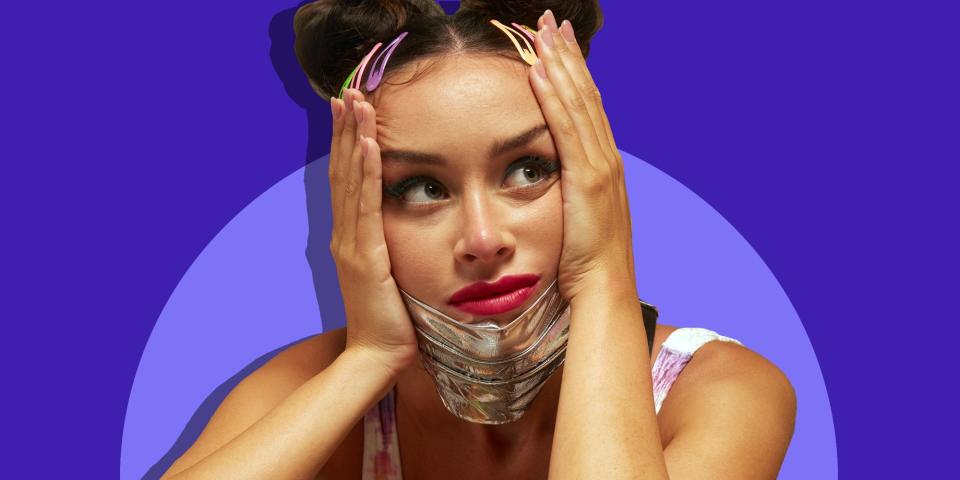
Yes, ‘Maskne’ Is a Thing — Here’s How to Treat It
By now, we're all very aware that face masks are now part of the new norm under quarantine (and if you aren't wearing one yet, it's time to hop on the bandwagon). Though many of us have not only accepted face masks but have used them as a new form of fashion, there's one issue that seems to keep popping up: maskne.
What is Maskne?
According to celebrity esthetician and founder of eponymous skincare line Renée Rouleau, maskne is exactly what it sounds like: acne caused by your personal protective equipment (PPE).
"Wearing a mask or other protective gear around your face can lead to a type of acne called acne mechanica," Rouleau says. "The only difference between acne mechanica and regular acne is the cause; while regular breakouts tend to be hormonally driven, acne mechanica is caused by friction (a physical disruption to the skin). When something is constantly rubbing up against your skin, the combination of friction, heat, and pressure can be a trigger for breakouts."
What Causes Maskne?
So, what's the main offense that causes maskne?
"The friction responsible for acne mechanica is the culprit behind most irritation caused by protective face masks," Rouleau says. "In fact, red, bumpy, rashy skin is a common precursor to acne mechanica. All of these are also signs of inflammation, which can wake up your skin’s pigment cells and cause lingering pigmentation long after the redness has subsided."
Rouleau also notes that due to the constant friction, your skin's protective moisture barrier can be disturbed, and it can create tiny cracks, leading to more skin ailments.
How to Prevent Maskne
Good news: Rouleau has a few tips to keep your skin protected from any mask-related blemishes!
"The goal should be to create a healthy environment in your skin where bacteria won’t thrive," she says, "This comes down to reducing oil production and using products with non-drying, antimicrobial properties."
Her first tip: Wash your mask regularly. "Not only is this the best practice for good hygiene, but it will also prevent oil and dirt from being reintroduced onto the skin," she says.
Second: Practice proper skin hygiene. What does that mean? Using an antibacterial toner throughout the day, and properly cleansing your skin at night.
"Properly cleansing your face before bed is always important," Rouleau says. "Start by cleansing your skin with a gentle, antimicrobial face wash that contains ingredients like salicylic acid or tea tree extract." After cleansing, she suggests using a detoxing face mask like the Renée Rouleau Rapid Response Detox Masque.
Rouleau also suggests incorporating a serum with salicylic acid about twice per week to clear your pores at night. "Salicylic acid is unique in that it has the ability to cut through oil and really get into your pore lining," she says.
Lastly, Rouleau also recommends switching to a mineral-based powder sunscreen, which is more gentle on your skin. "Regardless if you work indoors, SPF is also necessary," she says. "If you’re already struggling to keep your skin clear while wearing a protective face mask, you may want to opt for a mineral sunscreen powder instead of a traditional lotion or cream-based sunscreen."
How to Treat Maskne
Already dealing with bouts of tiny pimples caused from your face mask? Bummer. But Rouleau does have a few tips to soothe your troubled skin.
"The most important thing to focus on when treating irritation is keeping the skin protected and well-hydrated," she says. "If irritated, rashy skin is your concern, try using a hydrating, serum-infused toner a few times a day. I think of these toners as more of an ‘essence’ because they pamper and soothe thirsty skin cells by delivering moisture deep into the skin. Doing this a few times a day will remove dirt and oil buildup while simultaneously soothing the skin."
She also recommends ditching the acid and physical exfoliants for a bit to avoid excess irritation. "Adding in exfoliation could be too much," she says. "Listen to your skin and pull back if it seems like too much."
Also, Rouleau suggests using a cooling, hydrating gel mask to soothe your skin after a long day. "Gel masques tend to be the most soothing thanks to their naturally cooler temperatures," she says. "You can even stash your masque in the fridge for an extra-comforting treat!"
Last but not least, try looking out for a moisturizer that has soothing ingredients to help calm your blemish flare-ups.
"To focus on rebuilding and protecting your skin’s protective moisture barrier, use a healing moisturizer with reparative ingredients," she says.
Now that you've got the full scoop on maskne, check out our favorites for soothing any mask-related blemishes, below.
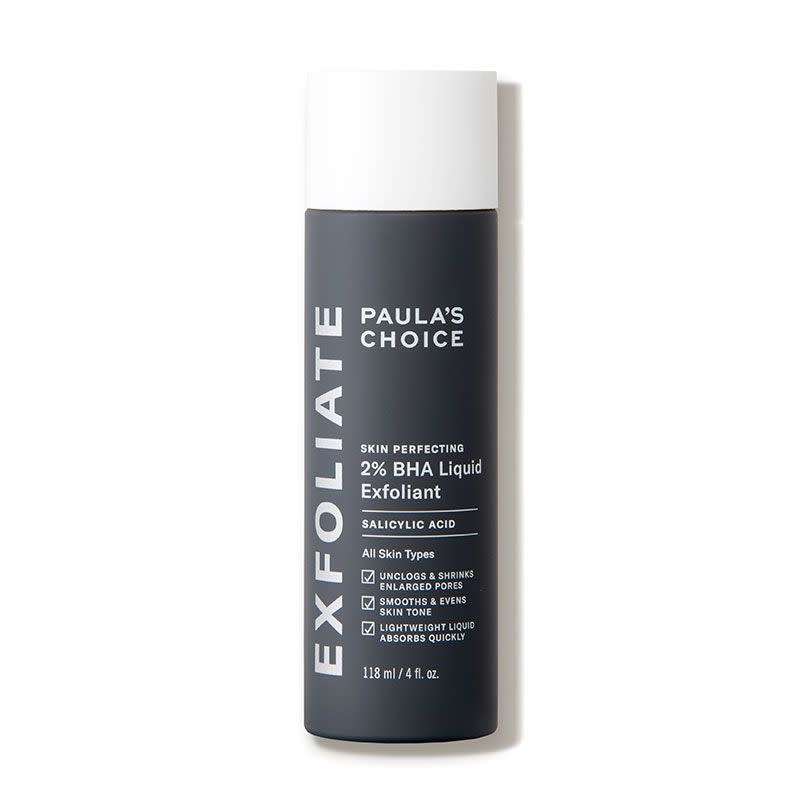
1) Paula's Choice Skin Perfecting 2% BHA Liquid Exfoliant
Paula's Choice
dermstore.com
$29.50
This fan favorite will blast any maskne-causing bacteria and impurities right out of your pores. Its 2% salicylic acid formula works overtime to unclog pores and refine your skin for a clean canvas, no matter how long it's been since you washed your face mask (gross).

2) Biossance Squalane + Tea Tree Cleansing Gel
Biossance
sephora.com
$29.00
Want a cleanser that will actually cleanse your skin without over-stripping? Then grab this one, stat: It’s infused with tea tree oil to control oil production and cleanse skin of any blemish-causing impurities, but also includes moisturizing squalane to give your complexion a radiant and hydrated glow.

3) Renée Rouleau Rapid Response Detox Masque
Renée Rouleau
reneerouleau.com
$55.68
We love this mask for its detoxing properties and gentle feel on our skin. It uses salicylic acid and tea tree oil to quickly remove and clarify skin of any acne-causing bacteria, but its gel-like consistency calms down any redness and inflammation on your complexion.
The results: calmer, happier skin in 15 minutes.
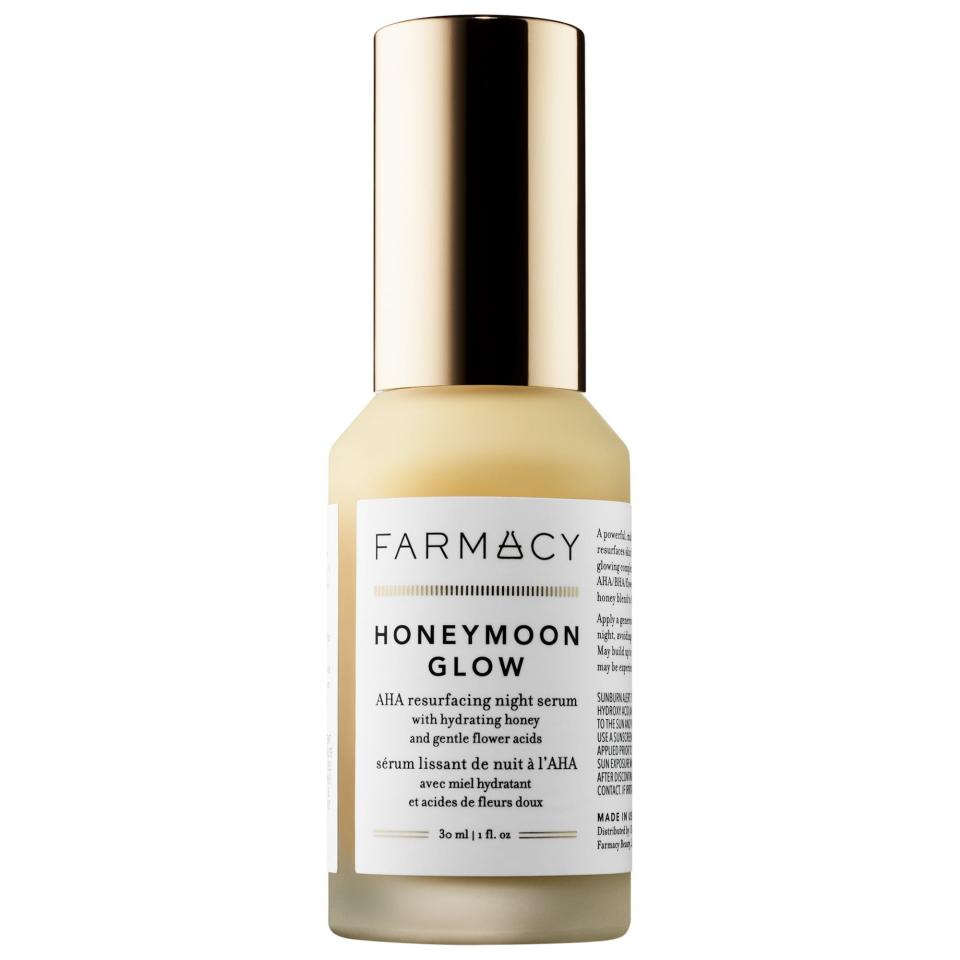
4) Farmacy Honeymoon Glow AHA Resurfacing Night Serum
Farmacy
sephora.com
$58.00
This night serum truly has it all: It contains a blend of botanically derived exfoliating acids to remove any gunk lingering in your pores overnight, but still feel extremely gentle on skin. How? Through its infusion of hydrating hyaluronic acid and soothing honey, of course.

5) ISDIN Mineral Brush Powder
ISDIN
amazon.com
$55.00
When it comes to powder sunscreens, this one just can't be beat. I love this formula for its universal tint that blends into all skin types seamlessly, plus its lightweight feel that won't leave any trace behind after you apply it.

6) PCA Skin Hydrating Toner
PCA Skin
dermstore.com
$40.00
If your skin is going through a bout of maskne, then follow Rouleau's advice and stick to a toner that works on hydrating your skin to help it repair.
This toner from PCA Skin has a blend of botanical extracts like watermelon and apple to increase moisture retention and hydrate your skin, while gently removing any excess impurities and oils in your pores.
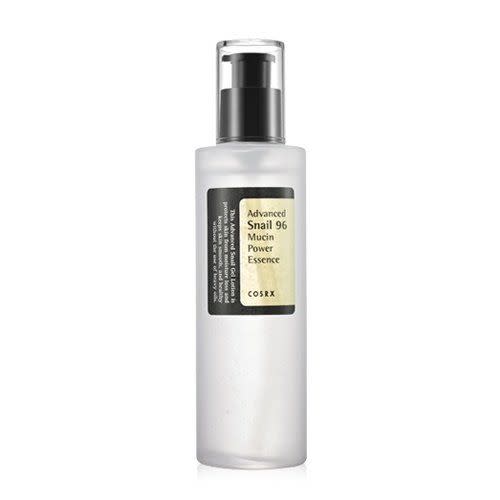
7) Cosrx Advanced Snail 96 Mucin Power Essence
COSRX
amazon.com
$17.45
If your skin is feeling extra-dry from your maskne woes, then an essence is what you need to help repair your moisture barrier.
This essence is beloved by over 3,000 people on Amazon for its not-so-secret ingredient: snail mucin, which is known for its hydrating and collagen-boosting properties.

8) Summer Fridays Jet Lag Mask
Summer Fridays
amazon.com
$62.03
You know how some masks feel like a tall glass of water for your pores? Consider this one the equivalent to a full gallon. This mask is a fan favorite for its mix of vitamins, ceramides, and antioxidants that intensely hydrate and moisturize the thirstiest of pores while gently exfoliating to reveal the dewiest, smoothest complexion.
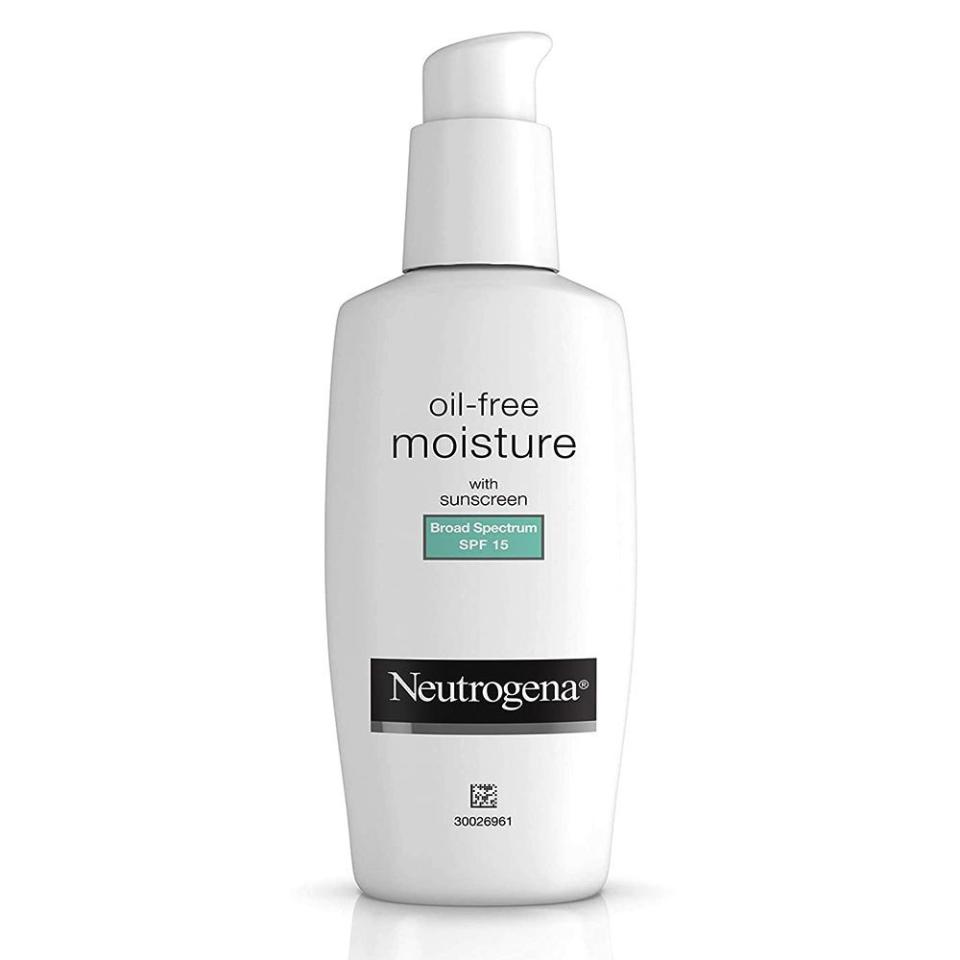
9) Neutrogena Oil-Free Daily Long Lasting Facial Moisturizer
Neutrogena
amazon.com
$9.37
When it comes to battling maskne, this oil-free moisturizer is a go-to. It's light on skin, but provides intense hydration with glycerin to give your skin a moisturized feel and dewy finish. Plus, it contains SPF 15 to add an extra boost of sun protection to your regular sunscreen.
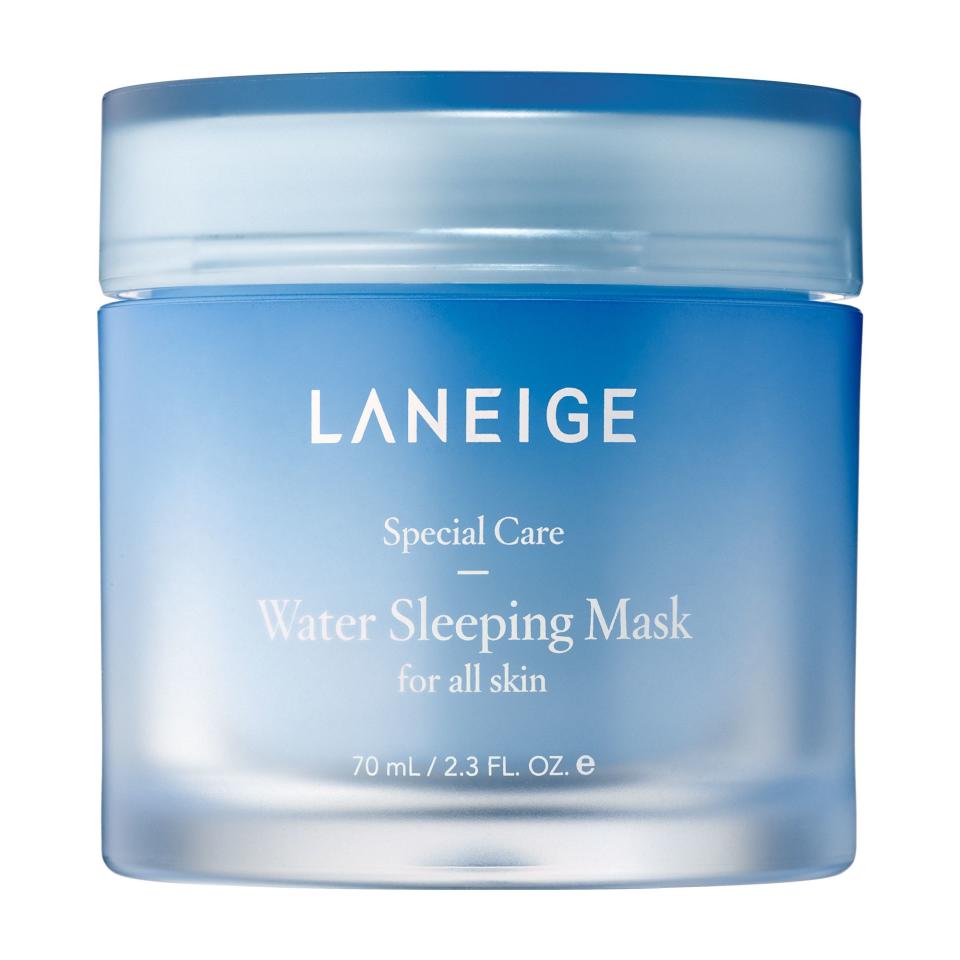
10) Water Sleeping Mask
LANEIGE
sephora.com
$25.00
Don't you wish solving maskne were as easy as sleeping? Well, now it is thanks to this hydrating overnight face mask from Laneige. This gel-textured mask uses botanicals — like evening primrose, apricot, and more — to hydrate and moisturize while brightening and purifying.
Ditch the zits, not the mask. ??